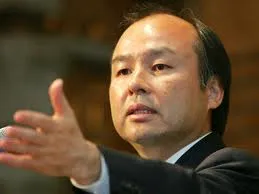
Total nuke phase out is cheapest option: Softbank's Son
Phasing out nuclear power plant is cheaper than having a 15 to 25 percent mix.
This is the finding of Softbank CEO and renewable energy advocate Masayoshi Son.
According to his group's calculations, the cost of generating electricity under the zero percent option would be ¥13.2 per kwh. If the 15 percent scenario is chosen, the cost would be between ¥12.6 and ¥13.4, and the 20 to 25 percent scenario would mean a cost of ¥12.6 to ¥13.9.
However, Son noted that regardless of which scenario is chosen by the government, it's going to mean a drastic increase in the amount of renewable energy used.
"In each scenario for 2030, the target for renewables is between 30 and 35 percent. So, even under the zero nuclear scenario, we are going to have to provide more than 30 percent of our energy with renewable sources by 2030," he said.
Speaking at an international symposium sponsored by the Japan Renewable Energy Foundation, Son said his foundation's calculations take into account a number of factors the government's three energy scenarios for 2030 appear to have avoided.
The government, in its two scenarios that call for some nuclear power, didn't sufficiently consider the insurance costs of the aftermath of an accident, Son said.
"There are also costs related to running a nuclear power plant past 40 years, decommissioning costs and the question of what to do with the nuclear waste," he said. "Have all of these costs been factored into the costs of nuclear power plant operations?"
To reach that goal, the key will be developing the potential of renewable energy and making sure there is an
interconnected grid for transmitting it, as well as breaking the utilities' monopoly on the grid, a goal Son has pushed hard for since announcing in spring 2011 his plans for a series of huge solar parks and wind farms to replace nuclear power.
For more.








![Cross Domain [Manu + SBR + ABF + ABR + FMCG + HBR + ]](https://cmg-qa.s3.ap-southeast-1.amazonaws.com/s3fs-public/styles/exclusive_featured_article/public/2025-01/earth-3537401_1920_4.jpg.webp?itok=WaRpTJwE)
![Cross Domain [SBR + ABR]](https://cmg-qa.s3.ap-southeast-1.amazonaws.com/s3fs-public/styles/exclusive_featured_article/public/2025-01/pexels-jahoo-867092-2_1.jpg.webp?itok=o7MUL1oO)









 Advertise
Advertise


